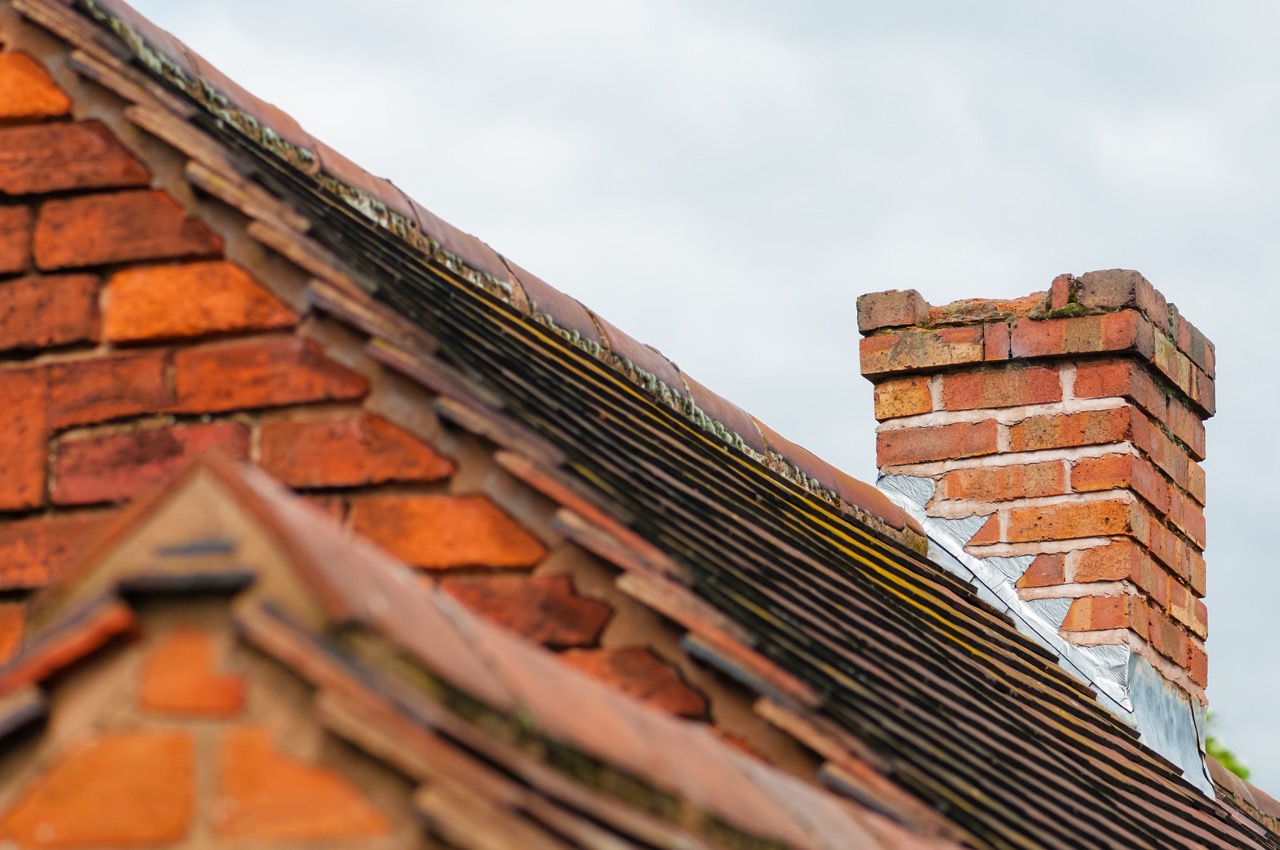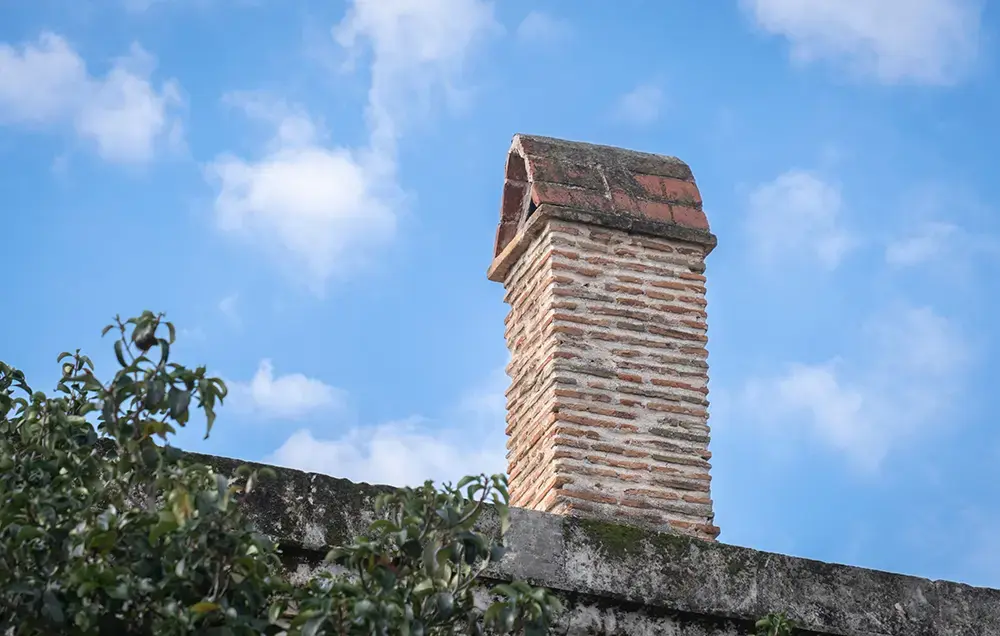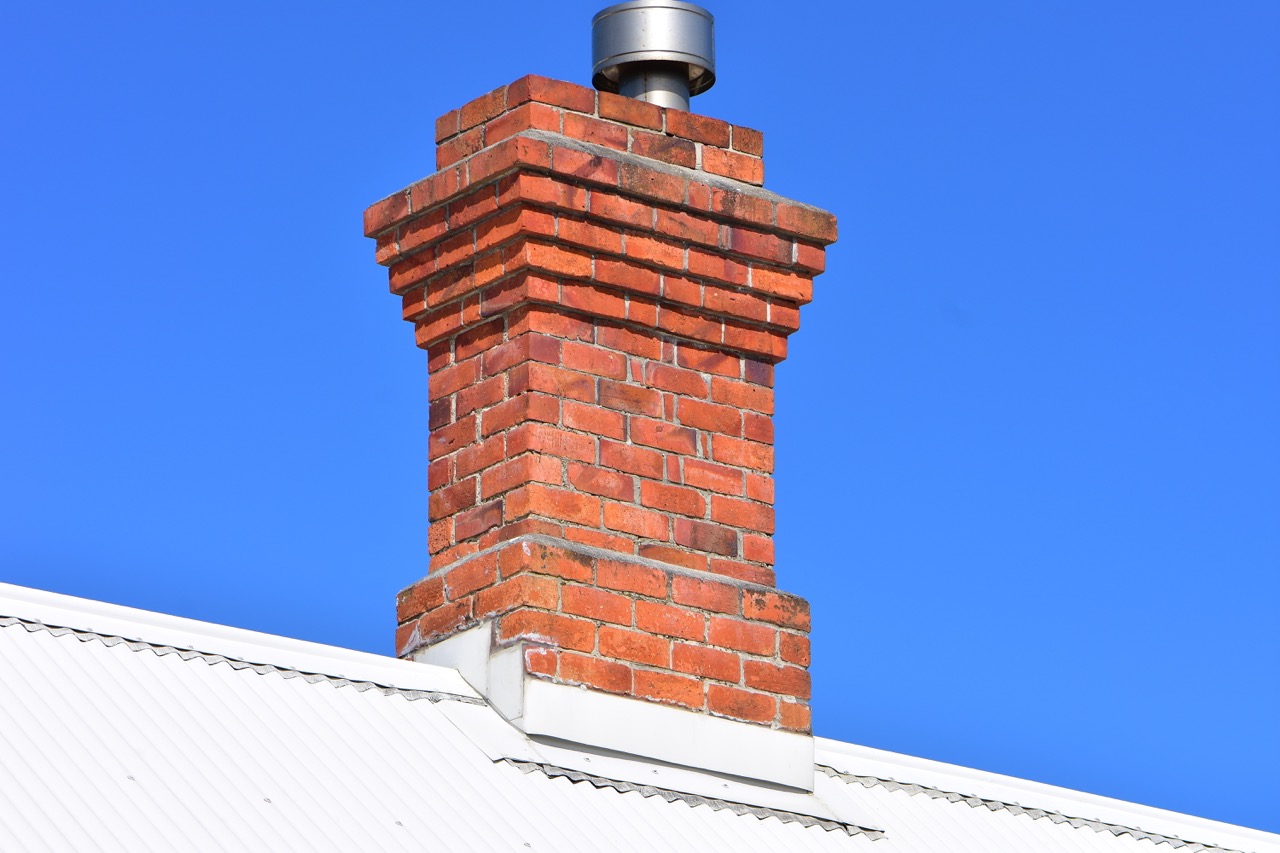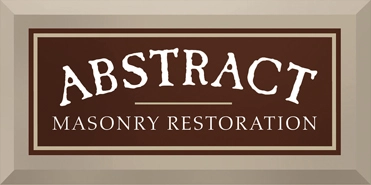A chimney, often considered the crown of a home, serves a critical purpose beyond its aesthetic charm. As a conduit for smoke and gases from fireplaces or stoves, it plays a vital role in ensuring a safe and comfortable home environment. Chimneys, particularly those in historic homes, are often built from masonry materials like bricks and mortar, and may also include a metal flue liner to aid in directing the smoke outdoors.
Over time, various factors such as water damage, chimney fires, or general wear and tear can compromise the structural integrity of these masonry chimneys, necessitating the services of a professional chimney repair company to restore them to their former glory. Restoring the structural damage of a chimney is vital for maintaining the smoke chamber’s functionality and protecting the cost of replacing a vent entirely.
At what point does damage to a chimney pose a threat to safety?
Chimney damage may not always be obvious, but it is certainly a cause for concern. Some signs that your chimney may need repairs include visible cracks in the masonry, water leaks in the fireplace or surrounding areas, or excessive creosote buildup. These issues can compromise the structural integrity of the chimney and pose a safety hazard if left unaddressed.
Damaged chimneys can also have a significant impact on indoor air quality, leading to the buildup of harmful gases such as carbon monoxide. As such, it is essential to regularly schedule chimney inspections and address any necessary repairs promptly.
What are the factors that can lead to improper functioning of a chimney?
Several factors could lead to the malfunctioning of a chimney:
- Structural Damage: This can be anything from bricks and mortar eroding over time, damage caused by a chimney fire, or even unseen damage within the smoke chamber.
- Water Damage: This is one of the most common causes of chimney problems. Water can seep into the masonry and cause significant deterioration over time.
- Creosote Buildup: If not regularly cleaned, creosote can accumulate in your chimney, leading to potential blockages and even chimney fires.
- Flue Liner Damage: The flue liner protects the chimney’s interior from heat and prevents the masonry from becoming too hot, which can lead to a fire. Damage to this liner can increase the risk of a chimney fire and affect the chimney’s performance.
- Improper Construction or Design: If the chimney isn’t constructed correctly, it can lead to problems with smoke and gas ejection, making the fireplace or stove less efficient.
- Natural Disasters: Events such as earthquakes, hurricanes, or severe storms can cause significant structural damage to a chimney.
- Age and General Wear and Tear: Just like any other part of a home, chimneys can simply wear out over time, especially if they’re not well-maintained.
Chimney Repair Cost Factors
The cost of chimney repair can vary depending on various factors:
- Chimney type: Certain chimney materials are more cost-effective and easier to repair compared to others.
- Repair type: Chimney repair encompasses a wide range, from basic fixes to intricate restoration projects.
- Repair method: Various repair methods involve different materials and labor expenses.
- Labor: The complexity and duration of the job directly impact the labor costs.
Cost Impacted by Different Chimney Types
The cost of chimney repair can also depend on the type of chimney you have:
- Brick Chimneys: Repairing a brick chimney can range from minor repairs like replacing a few damaged bricks to more extensive projects that involve rebuilding sections of the structure. On average, homeowners spend between $350 and $1,500 for brick chimney repairs. However, if the chimney requires extensive work, the costs can rise to $10,000 or more.
- Metal Chimneys: Metal chimneys are typically easier and less expensive to repair than masonry chimneys. Common issues with metal chimneys include rust and corrosion, which can be addressed through patching or replacing damaged sections. On average, homeowners spend between $150 and $300 for metal chimney repairs. However, if the damage is severe or requires a full replacement, costs can range from $700 to $3,000.
Understanding Different Types of Chimney Repairs
Homeowners may not always be aware of the various types of chimney repairs their homes may need. Below are some common chimney repair services and their average costs:
- Chimney Inspection: A standard inspection can cost between $100 to $250, depending on the extent and type of inspection required. It is essential to have regular inspections to catch any issues early on and prevent more expensive repairs in the future.
- Chimney Cleaning: Regularly cleaning your chimney can help prevent the buildup of creosote and other debris, reducing the risk of fires. The average cost for a professional chimney cleaning ranges from $100 to $300. However, if the chimney requires extensive cleaning due to severe buildup, costs can go up to $700.
- Chimney Repointing: This involves replacing any damaged mortar between bricks and is necessary for maintaining the structural integrity of a chimney. Costs vary depending on the extent of repointing needed, but homeowners can expect to spend anywhere from $500 to $2,000.
- Chimney Rebuilding: In severe cases where the chimney is beyond repair, a full rebuild may be necessary. The cost of rebuilding a chimney can range from $10,000 to $30,000 depending on the size and complexity of the project.
Tips for Maintaining Your Chimney
Regular maintenance can help protect your chimney from severe damage and costly repairs. Here are some important tips for maintaining your chimney:
- Regular Inspections: Regular chimney inspections can identify any damage or issues early on before they become major problems. It is recommended to have your chimney inspected at least once a year to ensure it is functioning safely and efficiently.
- Professional Cleaning: Over time, creosote and other debris can build up in your chimney, leading to blockages and potential fire hazards. Consider hiring a professional to clean your chimney annually to keep it clean and safe.
- Check for Water Damage: Water damage can significantly deteriorate your chimney’s structure. Be observant of signs of water damage, such as leaks, damp patches, and moss or vegetation growth on the chimney. Promptly address any signs of water damage to prevent more extensive problems.
- Repair Damages Promptly: If you notice any visible damage on your chimney, such as cracks in the bricks or missing mortar, it is crucial to repair these promptly. Neglecting these damages can lead to more serious structural issues over time.
- Install a Chimney Cap: A chimney cap can prevent debris, rain, and animals from entering your chimney, reducing the chances of blockages and water damage. If you don’t already have one, consider installing a cap for added protection.
- Monitor Your Chimney’s Performance: Pay attention to how your chimney is performing. If you notice that smoke is not venting properly or a strange smell is emanating from your chimney, these could be signs that there is a problem that needs to be addressed.
Remember, investing in preventative maintenance can save you from significant repair costs in the long run and keep your chimney in good working condition for longer.
DIY Chimney Repairs vs. Hiring a Professional
When it comes to chimney repairs, homeowners often grapple with the decision to do it themselves or hire professionals. It’s crucial to weigh the benefits and drawbacks of each approach.
DIY Chimney Repairs:
Venturing into DIY repair tasks can save on labor costs, and for minor issues — such as replacing a chimney cap or cleaning out debris — a DIY approach can be effective. However, it’s important to remember that chimney repair can be complex and risky.
Mistakes made during DIY repairs can sometimes lead to more severe damage and potentially costlier repairs down the line. Safety is also a key concern. Working on a roof can be dangerous, especially for those without relevant experience or proper safety equipment.
Hiring a Professional Chimney Repair Service:
Professional chimney repair companies have the necessary equipment, knowledge, and experience to tackle all types of chimney problems. They can identify issues easily, suggest the most efficient methods of repair, and complete the work safely.
Though it may seem costlier upfront, hiring professionals can save homeowners considerable time and money in the long run, as they ensure that the repair is done right the first time, preventing future issues.
In general, for tasks beyond simple cleaning or cosmetic fixes, it’s wise to call in the professionals. They can ensure that the chimney maintains its structural integrity, operates safely, and effectively exhausts smoke and gases from your home.
FAQS
Q: Is it possible to repair a chimney without rebuilding it completely?
Yes, in many cases, minor damages can be repaired without requiring a full rebuild. However, it is essential to regularly inspect and maintain your chimney to catch any issues early on before they become more severe.
Q: Will homeowners’ insurance cover the cost of chimney repairs?
It depends on the specific policy and coverage. Homeowners should check their insurance policies to understand what types of damages are covered and under what circumstances. Generally, chimneys are covered if the damage is sudden and accidental, such as from a chimney fire or severe storm. However, regular maintenance costs are typically not covered.
Q: Is it necessary to have a chimney inspection before selling a home?
It is not legally required, but it is highly recommended. A thorough chimney inspection can identify any potential issues that may be flagged during a home inspection by the buyer. Addressing any problems beforehand can help prevent delays or negotiations during the selling process. Plus, having a well-maintained and functional chimney can add value to your home.
Conclusion
Properly maintaining your chimney is essential for both the safety and longevity of your home. Regular inspections, cleaning, and timely repairs can help protect your chimney’s structural integrity and prevent costly damages down the line. While DIY repairs may seem like a money-saving option, hiring professionals can ensure that the job is done correctly and safely, saving you time and expenses in the long run.
Remember to prioritize regular maintenance to keep your chimney functioning efficiently and safely for years to come. So don’t forget to schedule an annual chimney inspection with a trusted chimney repair company to keep your home safe and save on potential repair costs in the future! Overall, investing in the proper care of your masonry chimneys will not only protect your investment but





